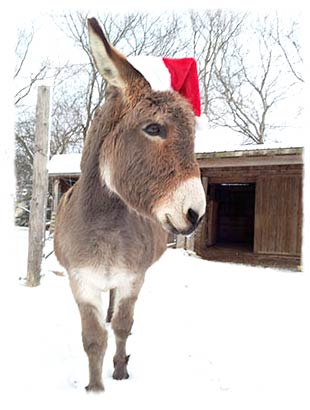Organic Farm Resources and Certifications

At Thyme Again Gardens we are committed to the ethical treatment of our animals and our environment. We emphasize the use of renewable resources and the conservation of soil and water to enhance environmental quality for future generations.
Organic Certification Documents
View certification documents from prior years
Pest and Disease Controls
A few great methods to discourage pests and prevent disease that have very little or no impact or even are beneficial on and to the environment.
- Stinging Nettle – a great herb as a tonic for humans, excellent as a fertilizer in the garden and it deters Aphids. Soak freshly picked leaves from young Nettles in water (best time late morning between Full and New Moon, descending Moon) for 24 hours – spray onto plants to deter aphids. If nettle is soaked longer it will act as fertilizer. Dilute with more water and gently water in new plants.
- Sometimes we try to weed and we have the hardest time to pull anything out of the ground. Try after or during a rainfall, especially in the 2 weeks of a descending Moon. For weeds with very large tap roots, like thistles, cut the stalk at ground level just before the flower opens. This method has very little impact on your back. It may have to be repeated a couple years.
- Comfrey tea has also a very beneficial effect on the plants.
- Elder spray is effective against mildew, especially on roses, and also helps against black spot. It does not kill ladybugs or their larvae. Boil up to 1 pound elder leaves with 3.5 litres of water. Simmer for half hour, topping up water to keep it at original level. Sieve when cold. If sealed in bottles, will keep for up to 3 months. Elder spray can also be used for killing aphids and small caterpillars.
- Chive tea combats powdery mildew on roses.
- Garlic bulbs can be used to control a variety of pests and diseases, including fungal diseases, nematodes, aphids, mites, white fly, bacteria, ticks and scab. Prepare by grinding 3 bulbs of garlic, add some water and soak for 2 days. Then add one tablespoon of soap powder, stir, filter and add 15 to 20 litres of water.
- Chili peppers act as an insecticide (stomach poison), repellant and virus control. Target pests include ants, aphids, caterpillars and slugs. Prepare by mixing 500 grams of chili peppers into 3 litres of water. Let soak for 10 – 15 minutes. Add 30 grams of soap to help the mixture stick to plants. Add 3 more litres of water, filter and spray the plants.
- Oak leaf mulch – use around seedlings or plants which are vulnerable to slug damage.
- Neem – the seed and leaves control insects, nematodes, fungi and viruses. Neem compounds act mainly as stomach poisons.
- Basil – the leaves and stems of basil target pests like fruit flies, leaf miners, red spiders, slugs, snails and mites. Prepare by mixing 100 grams of basil leaves and one litre of water. Soak overnight. Then filter the mixture, add a few drops of liquid soap and stir. Dilute this into 10 – 15 litres of water.
- Baking Soda has fungicidal properties when used as a spray on garden plants. It is an effective protectant as well as an eradicant that will kill some organisms that have already infected your plants. Baking Soda will help prevent roses from being damaged by black spot. It may also control other fungal diseases such as powdery mildew on monarda and phlox.
- Horsetail Spray – some organic and biodynamic gardeners use the common weed horsetail as a botanical fungicide to prevent and control plant diseases. In a stainless steel pot mix 1/8 of a cup of dried leaves in one gallon of water. Bring to a boil, let simmer for at least a half hour. Cool and strain through cheese cloth. This mixture will keep for one month stored in a glass container. Dilute the horsetail concentrate by adding 5 – 10 parts water to every one part concentrate. Spray infected plants once every week. If you anticipate a disease outbreak because of prevailing weather conditions, begin a preventative spray.
- Seaweed Solution – as well as adding pot ash and trace elements to soil, seaweed helps against aphids, potato scab and botrytis. It is more effective to use a weak solution of seaweed every other week, rather than 2 or 3 strong solution sprays.
Soil Amendments
Soft rock phosphate
Is the source of phosphorous and calcium along with other valuable trace minerals. Phosphorus helps plants grow sturdy root systems and makes them hardier and less likely to succumb to dry spells.
Kelp
Products are generally made from dried and ground seaweed that is harvested from the waters of the north Atlantic.Kelp is used as a long-term soil conditioner, plant growth stimulant, plant development and food. Kelp contains a large selection of trace minerals and potash. It enhances the germination of seeds. It also improve drought and frost resistance.
Greenstone
Is a valuable, economical asset in growing strong, hardy plants. Greenstone is of soft nature, and will break down and become part of the soil. Greenstone is the crushed product from a sandy rock that contains a high amount of glauconite, a greenish mineral formed in shallow marine deposits. Glauconite contains elements of potassium,phosphorus, iron and magnesium.
Gypsum
Also called land plaster, is calcium sulfate. It raises the calcium of the soil without changing the pH. It helps correct excess magnesium or sodium content of the soil. It helps loosen tight clay soil. It is neutral rather than alkaline.
Chemical Free Yards
A presentation to the Sustainable Living Symposium (PDF)
